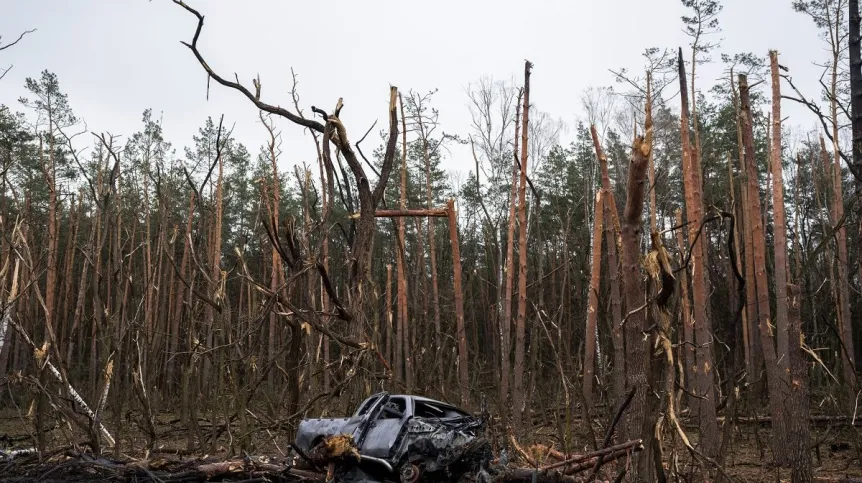
Scientists from the Warsaw University of Life Sciences want to restore the recreational potential of forests in Ukraine that have been destroyed by war.
BURNED FOREST, NIGHT AND FRONT
Dr. Wojciech Kędziora from the Institute of Forestry at WULS-SGGW said: “In destabilised, destroyed areas there is a potential that is not always quickly and fully utilized. We want to check this through the exchange of good practices, a review of existing directions, methods and ways of developing such areas. We will expand the traditional conceptual range of damaged forest areas; the subject of our research will be not only areas affected by natural disasters (floods caused by climate change, hurricanes, insect outbreaks), but also areas destabilized as a result of human activity (post-war, post-mining forests).”
Kędziora is the leader of the project 'Restoring Recreational Potential of Damaged Forests for Human Well-Being in Post-War Ukraine', funded by the Visegrad Funds.
The scientists will collect and analyse information about methods, strategies and best practices for restoring the recreational potential of damaged forests in the partner countries of the Visegrad Group (Poland, Czechia and Slovakia). They will also propose details of their implementation.
SCIENCE TO SUPPORT NATURAL PROCESSES
Forests, especially those in the vicinity of cities in eastern Ukraine, have been seriously damaged, we read in the release.
According to experts from WULS-SGGW, before the war, forests were mainly used for recreational purposes. Currently, they are being destroyed not only by the war but also by natural disasters. For these reasons, forest ecosystems in Ukraine, but also Central Europe in general, are losing their value as an area suitable for recreation.
The scientists said: “Restoring the recreational potential is a long-term process. It is of utmost importance to provide the public with safe access to damaged forest ecosystems, which will provide relief from stress and contribute to regeneration, while preserving ecosystems in good condition.”
Foresters from WULS-SGGW together with partners from Czechia, Slovakia, and Ukraine focus on forests with significantly reduced social and natural value. They believe that such forest areas can be revitalized faster than through natural processes. By properly managing the forests, their non-production value can be restored. This, in turn, can give an impulse for the development of tourism and recreation.
As part of the project, scientists will determine the conditions for the development of ecotourism. They will propose how to include damaged forests in the recreational system of green areas, and rebuild the base for activities in the area of ecological education and green jobs.
Partner universities of the project are: the Sumy National Agrarian University (Ukraine), the Czech University of Life Sciences Prague and the Technical University in Zvolen.
PAP - Science in Poland
kol/ agt/ kap/
tr. RL













